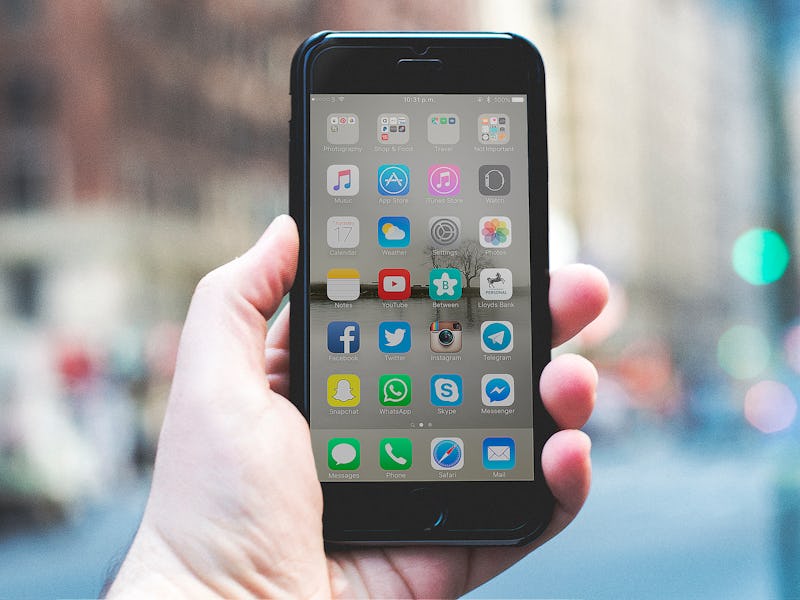Teen Tracking Apps Have Same Dumb Consequences as 'Helicopter Parenting'
Today's teens need guidance, but stifling them won't help.

In the wake of the web-based “condom snorting challenge” and schools dealing with vape addictions, parental control apps, which let parents monitor their kids’ online activity, may seem like an especially good idea. However, a recent study reveals that parental control apps aren’t only ineffective; they may also be causing more harm to teens’ overall health.
For the upcoming study, “A Matter of Control or Safety? Examining Parental Use of Technical Monitoring Apps on Teens’ Mobile Devices,” researchers at the University of Central Florida surveyed 215 pairs of parents and teenagers between the ages of 13 and 17. Roughly half the parents said that they use parental apps on the family smartphones, offering them ways to track teen phone usage and location, block other apps, or even limit time spent on the device. However, the researchers found that teens whose parents used these apps were more likely to be exposed to unwanted content and online harassment.
“Overall, increased parental control was associated with more (not fewer) online risks,” the scientists stated in the paper’s abstract. The study, lead by Pamela Wisniewski, Associate Professor at UCF’s College of Engineering and Computer Science, indicates that teens who were victimized online were more likely to be monitored by their parents through one of these apps. Helicopter parenting, when applied to internet usage, seems to more than annoy teens; it could be making the teen more vulnerable to online harassment and other safety risks.
Recent studies on ‘helicopter parenting’ suggest that teens with this relationship with their parents may have to deal with the setbacks well into adulthood, too. In a study published in Journal of Child and Family Studies in 2016, researchers at Florida State University found that helicopter parenting could indirectly lead to issues such as depression and anxiety for young adults. Researchers surveyed more than 460 college students, ages 18 to 25, and found that students with a helicopter parent “were more likely to report low levels of self-efficacy, or the ability to handle some tougher life tasks and decisions.”
Parental control apps are the latest parenting trend that researchers argue decreases a teen’s autonomy. This has long been linked to worsening health practices among young adults. According to a 2015 report from the C.S. Mott Children’s Hospital National Poll on Children’s Health at the University of Michigan, only 34 percent of parents say their teen discussed health concerns privately with a doctor without them in the room. Moreover, less than 10 percent say their teens can complete their health history form independently.
Parents acknowledge heavy involvement in their teens' health interactions.
“The majority of parents are managing teens’ health care visits, and their teens may be missing out on valuable opportunities to learn how to take ownership of their own health,” says Sarah J. Clark, M.P.H., associate director of the C.S. Mott Children’s Hospital National Poll on Children’s Health. Whether online or in the doctor’s office, it seems that a parent’s level of involvement is inversely proportionate to a young adult’s learned ability to navigate these systems on their own.
Thanks to parental control apps, which streamline and automate restrictions on teens, helicopter parenting is becoming more automated. But according to recent research, those apps aren’t a quick fix: Beyond destroying trust between parents and teens, restrictive parenting could be more damaging to the young person’s sense of agency.